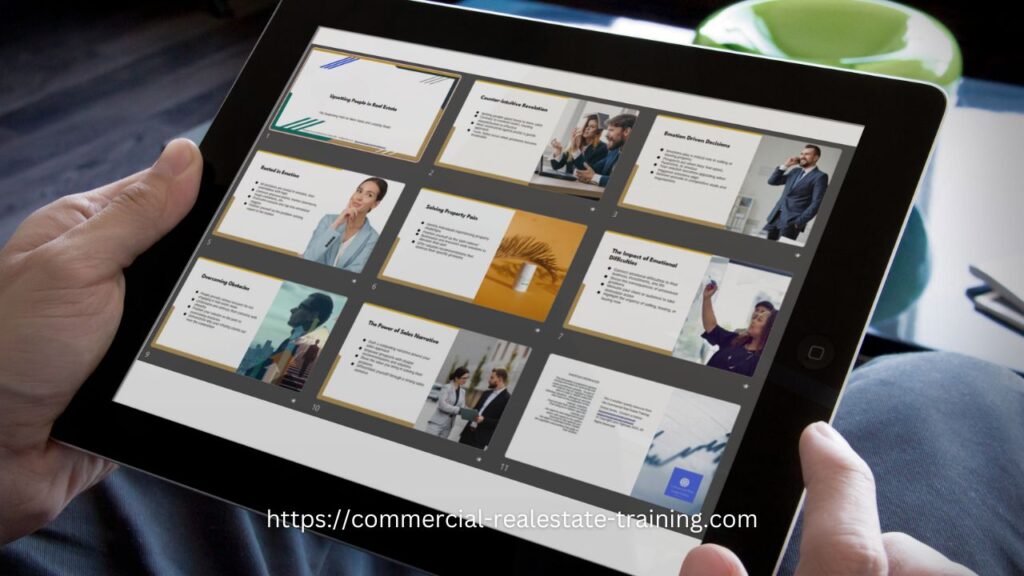How to Negotiate Like a Pro in Real Estate
Let’s face a fundamental and ‘raw’ fact as real estate agents and brokers. Everything we do in commercial real estate every day involves several negotiation factors. It stands to reason that improving our negotiation skills will help each of us substantially with listings, transactions, and commissions.
How can you move ahead with that? Practised negotiation skills will help any agent get better listings, convert transactions, and grow market share. When was the last time you practised your negotiation skills?
In this property market of ‘change and churn’, your negotiation skills will help you thrive and grow as an agent in your location.
DOWNLOAD Slide Deck: Negotiating Skills here

Negotiation Skills and Solutions
What are the negotiation factors to consider in your real estate business? Let’s keep it simple and say that commercial real estate sales and leasing involve a standard group of stages, all involving negotiation. They are:
- Prospecting for new business
- Creating meetings with new people
- Presenting ideas about a property and client situation
- Listing a property using the best method of sale or lease
- Getting the correct price or rent conditioned and set for the client
- Creating a marketing campaign that targets the right people
- Asking for marketing money and locking in commission rates
- Inspecting with qualified buyers or tenants
- Negotiating the factors of a deal
- Closing on a contract or lease agreement
One thing should be remembered here. No client or prospect wants their property to stay on the market too long. The client knows the property will become ‘stale’, and they don’t want to be seen as a ‘greedy’ and unrealistic property owner.
SWOT the property first
Where do you start? Do a complete ‘SWOT’ analysis of the property and the client and find the pressure points. Look for the main ‘pain points’ or opportunities in the ‘SWOT’ that could motivate the client to advance.
Build your property solutions and recommendations around solving those SWOT issues in a timely way using the specific recommendations that you are making. That’s what top agents do.
Client Demands and Attention
You could argue that the client is asking for too much money for the property. It is a common issue if you are the first agent to accept the listing.
Client conditioning is a ‘negotiation’ factor that should be improved. To condition a client on what is happening in the market, use market evidence, visual information, and comparable property results in your area.
Realistic property market conditions are always available as a backup, and the client or prospect may know they are asking too much for their property. Most clients will pay attention to the property market realities you can share; both verbally and visually.
No client wants their property to be a marketing ‘disaster’, so use your real estate professionalism and negotiation skills to guide the client forward.

Real Estate Stories are Leverage Points
Create a property story based on the information you have. Use facts and shape them with charts, statistics, photographs, and testimonials. Use stories from your experiences locally with people and listings.
That use of resources is something to remember as you negotiate the elements of a property listing for the client and how you may want to market it.
Remember your market and the changes in it today. Strategies and property recommendations about the client’s property will assist you in returning them to the realities of your local real estate market.








